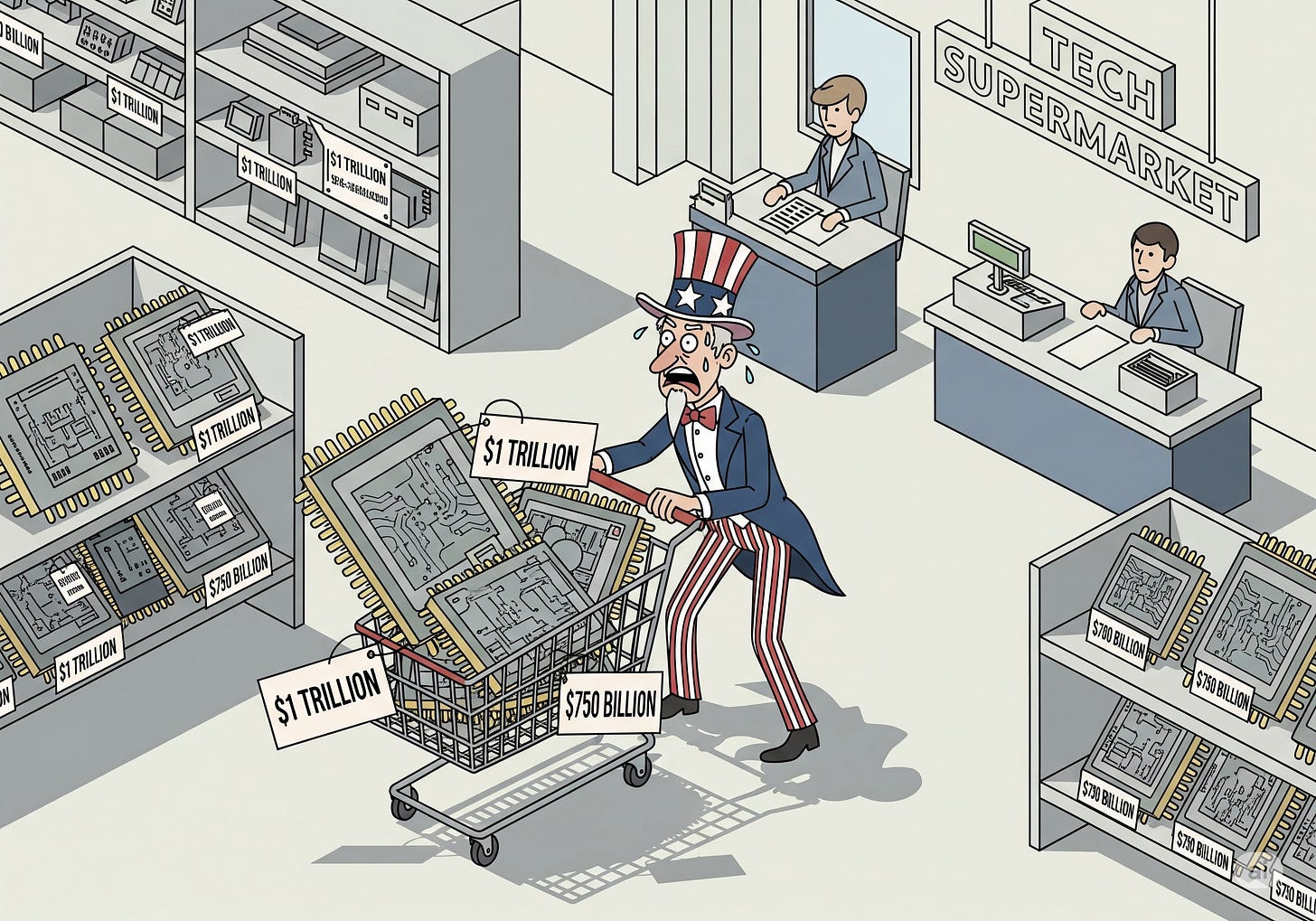AI spent the week living its best contradiction — warning about bubbles while blowing them bigger, reading our minds while missing the point, and turning the US government into a venture capitalist. Silicon Valley has discovered you can have your cake, eat it too, and warn everyone the cake is poisoned. Welcome to the future, where nothing makes sense but everything costs billions.
SAYING ONE THING, DOING ANOTHER
Altman Yells "Fire" While Pouring Gas as OpenAI's CEO warns investors AI is definitely a bubble where "phenomenal" money will vanish, while simultaneously seeking a $500 billion valuation. OpenAI Locks the Back Door by warning investors against "unauthorized" methods to buy stakes, protecting their bubble from the wrong kind of speculation.
PRIVACY'S FINAL FRONTIER
Stanford Cracks Mind Reading with a brain-computer interface that decodes your inner monologue, immediately realizing they've opened Pandora's Box and scrambling to add safeguards. Google Confesses Energy Sins by revealing each Gemini query burns 0.24 watt-hours, the first honest admission of AI's environmental appetite.
CAPITALISM GETS CONFUSED
Uncle Sam Becomes Chip Daddy as the US government buys 10% of Intel for $8.9 billion, because apparently free markets need government venture capital now.
Curious what it all adds up to? Let’s break it down. Keep reading below.
Tell Me More
The Prophet of Profit. Altman's bubble warning while chasing astronomical valuations is peak Silicon Valley: monetize the problem you're creating. It's like an arsonist selling fire insurance. He's not wrong about the bubble — he's just making sure OpenAI is too big to pop. This calculated honesty lets him claim prescience when smaller players implode while positioning OpenAI as the survivor. Genius? Evil? Why not both?
Who Watches the Gatekeepers? OpenAI's crackdown on unauthorized investments isn't protecting investors — it's controlling the narrative. They want desperate money, not smart money. By limiting access, they create artificial scarcity that inflates valuations further. It's the Supreme drops model applied to equity: make people beg to give you money, then act like you're doing them a favor.
Your Thoughts Are No Longer Your Own. Stanford just made telepathy real, then immediately realized they'd created a nightmare. The researchers' panic to add safeguards reveals the terrifying truth: we're building mind-reading tech faster than we can figure out if we should. Mental privacy isn't just dying — it's being murdered by grad students with good intentions. The killer app of 2030 might literally be reading your mind without consent.
AI's Dirty Little Secret Goes Public. Google admitting each query burns 0.24 watt-hours is like McDonald's publishing calorie counts — necessary transparency that makes you queasy. Multiply that by billions of daily queries and AI's carbon footprint rivals small nations. The irony? We're burning the planet to build machines that tell us how to save it. Expect every AI company to bury similar admissions in footnotes while trumpeting their "green initiatives."
When Government Goes Shopping. The US taking 10% of Intel isn't capitalism or socialism — it's panic shopping. Like toilet paper in 2020, chips are the new strategic reserve. This precedent turns every critical technology into a potential nationalization target. Today semiconductors, tomorrow what? AI companies? Social networks? The free market just got a new player with unlimited funds and nuclear weapons.
Below The Fold
The brutal truth of NFL cutdown day highlights the human cost of competitive industries. Wide Left Football
Sometimes the simple things are best: a spicy cherry tomato and garlic pasta recipe proves good cooking doesn't need to be difficult. What To Cook
The tragic death of French streamer Jean Pormanove exposes the dangerous, unregulated fringes of the creator economy. Max Read
An ancient Quechua play whose first documented performance led to a massive indigenous rebellion challenges our understanding of narrative power. Astral Codex Ten
A new paper explores the ethical dilemma: would you lie to protect your child? After Dinner Conversation
A new fork of the Zed code editor prioritizes privacy and local-first operation over cloud-centric features. GitHub
Formalizing a proof of Fermat's Last Theorem in the Lean theorem prover pushes the boundaries of human-machine collaboration in math. Imperial College London
A 2,000-year-old sun hat worn by a Roman soldier reminds us of humanity's enduring story beyond the tech cycle. Smithsonian Magazine
Your junk-filled garage, not range anxiety, might be the real barrier to EV adoption. Ars Technica
The Onion brought back its print edition, and it's actually working — a contrarian success story in a digital world. The Wall Street Journal
Looking Ahead: In the contradiction economy, expect more leaders to master the art of causing problems while warning about them. It's not hypocrisy if you profit from both sides.
Thanks for reading Briefs — your weekly recap of the signals I couldn't ignore. This week that meant reading 986 stories from 50 sources. You're welcome.


